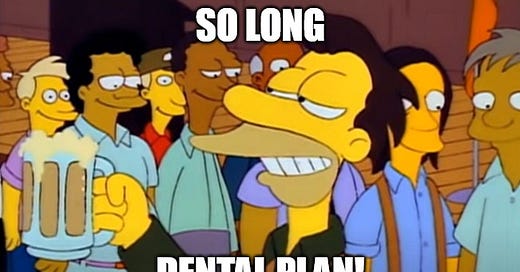The Poor Are Paying the Price for Frivolous Social Justice Weirdness
The reconciliation bill is making the tradeoffs clear
The $3.5 trillion (or substantially less) reconciliation bill is Democrats’ only chance to pass major social spending legislation for at least four years. We’ll probably lose the House next year; the President’s party always loses big in midterms except after 9/11, and I want Democrats to win but I’m not prepared to 9/11 anything. The 2024 Senate map is bad for Democrats; we’ll be defending 23 of 33 seats, so holding the Senate will be tough. If Kamala Harris or the admirably-tenacious husk of Joe Biden hold the White House in 2024, then the “out-party wins the midterms” problem will happen again in 2026. And if a Republican wins the White House, then social spending is off the table and shirtless Viking insurrectionists roaming the halls of Congress is back on.
This is our only shot for a while. Our airport-toilet-paper-thin margins in Congress make things tough; Pelosi and Schumer have to attend to the needs of any prolapsed anus who whines about anything — it’s like being a waiter. And, unfortunately, various complaints from various anuses have already shaped the bill in ways I don’t like.
Moderate Democrats are limiting spending on things like health care and child care; in fact, they’ve put the whole bill in jeopardy. They’ve caved to pressure from lobbyists and taken some of the most progressive taxes out of the bill. It sucks. And I want to be clear: The villains here are moderate Democrats who are blocking some of the most efficient and fair ways of raising revenue that we have. But I also think it’s worth reflecting on how the left’s frequent forays into unpopular identity politics is probably empowering those moderates and having negative consequences for the poor and middle-class.




